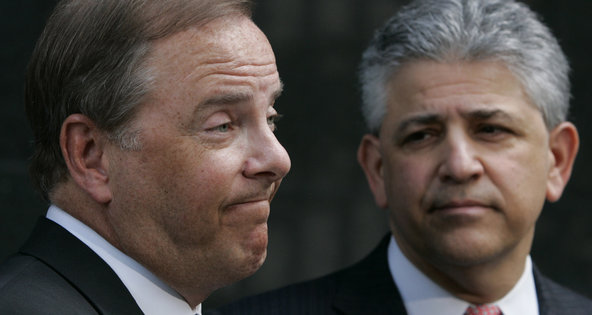LONDON — The developers of a major natural gas field in Azerbaijan have decided that the western end of their export pipeline to Europe should take a shorter, southern route ending in Italy rather than a northern one to Austria, one of the companies competing for the pipeline business said Wednesday.
The Austrian energy company OMV, the lead shareholder in the company vying for the northern route, said it had been informed it would not win the pipeline deal, which by some estimates was to cost $4 billion.
The formal announcement, which was expected to be announced in Azerbaijan on Friday, is likely to favor a project called the Trans Adriatic Pipeline, which would run about 900 kilometers, or 560 miles, through Greece and Albania, ending in southern Italy. The Austrian route would have been about 1,300 kilometers long.
The winning route will convey gas to Europe through a connection to a new pipeline planned to run through Turkey that links back to the Azeri field through Georgia.
A spokesman for the assumed winner, the Trans Adriatic Pipeline group, which is based in Baar, Switzerland, declined to comment Wednesday.
The reasons for the decision by the gas field’s developer — the Shah Deniz II group — were not disclosed on Wednesday. The group includes Socar, the Azerbaijani national oil company; BP of Britain; Statoil of Norway; and Total of France.
The decision to go with a South European route is a milestone in a long effort by Azerbaijan and its partners — particularly BP, the field operator — to bring gas from the huge reserves beneath the Caspian Sea directly to Europe in competition with Russia. Although Azerbaijan’s role as a supplier to Europe might start relatively small, it could grow as the country develops additional finds known to lurk beneath the Caspian’s floor.
BP and other members of the Shah Deniz II group are expected to take a 50 percent shareholding in the pipeline. Shah Deniz II is a gas project in the Caspian Sea, off eastern Azerbaijan, which along with its export pipelines is expected to cost more than $40 billion. The group has not made a final investment commitment to proceed with the project, although a decision is expected by the end of the year. A separate Azeri field, the Shah Deniz I, is already producing and exporting gas to Georgia and Turkey.
Andrew Neff, a Moscow-based analyst at the market research firm IHS in Moscow, said that Socar’s agreeing last week to take a majority stake in the Greek gas distributor Desfa may have tipped the balance toward the Trans Adriatic Pipeline. “This gives Azerbaijan a direct supply relationship with Greece,” he said.
Other factors may have included cost; gas demand in Europe has been severely weakened by the continued economic doldrums. The longer pipeline to Austria was expected to be somewhat costlier to build and operate than the route to Italy. In addition, the consortium leaders may believe that Italy and Greece are better markets for gas than countries like Bulgaria and Hungary.
But Italy, for one, is oversupplied with gas and has been trying to trim imports from countries like Algeria. The Greek economy also appears to be a long way from recovery.
The biggest loser in the deal is OMV, which did the major research and planning for the northern-route consortium, called Nabucco West, investing about 37 million euros, or $48 million, to date. The company considers its plan to transport Azeri gas dead, according to an OMV spokesman, Johannes Vetter. Mr. Vetter said the company was still hopeful, though, of using the work it had put into Nabucco to help build pipelines to bring gas from offshore fields being developed off Bulgaria.
But the decision is a bitter blow to OMV, as well as to countries along the Nabucco route like Bulgaria, Hungary and Romania that had hoped to tap into the line and profit from transit fees. They also hoped to reduce their energy dependence on Russia.
Although BP has said that it wants a solution that benefits customers along both routes, with both pipelines eventually being completed, some analysts say the Nabucco group might not be able to bounce back. “They are now competing with everyone else,” Mr. Neff said.
Whatever the route, the 10 billion cubic meters, or 353 billion cubic feet, of gas that is initially expected to come through the new pipeline each year would be small compared with the estimated 140 billion cubic meters of Russian gas exports to Europe.
The Russian gas giant Gazprom is also planning a pipeline, called Southstream, that would run from Russia under the Black Sea and pass through Bulgaria, Serbia and Croatia to wind up in northern Italy.
Winners from the decision Wednesday include Statoil and a Swiss company, Axpo, which are large shareholders in the Trans Adriatic Pipeline project. E.On, the big German utility, is also a shareholder.

Article source: http://www.nytimes.com/2013/06/27/business/global/europe-route-chosen-for-azerbaijan-gas.html?partner=rss&emc=rss
